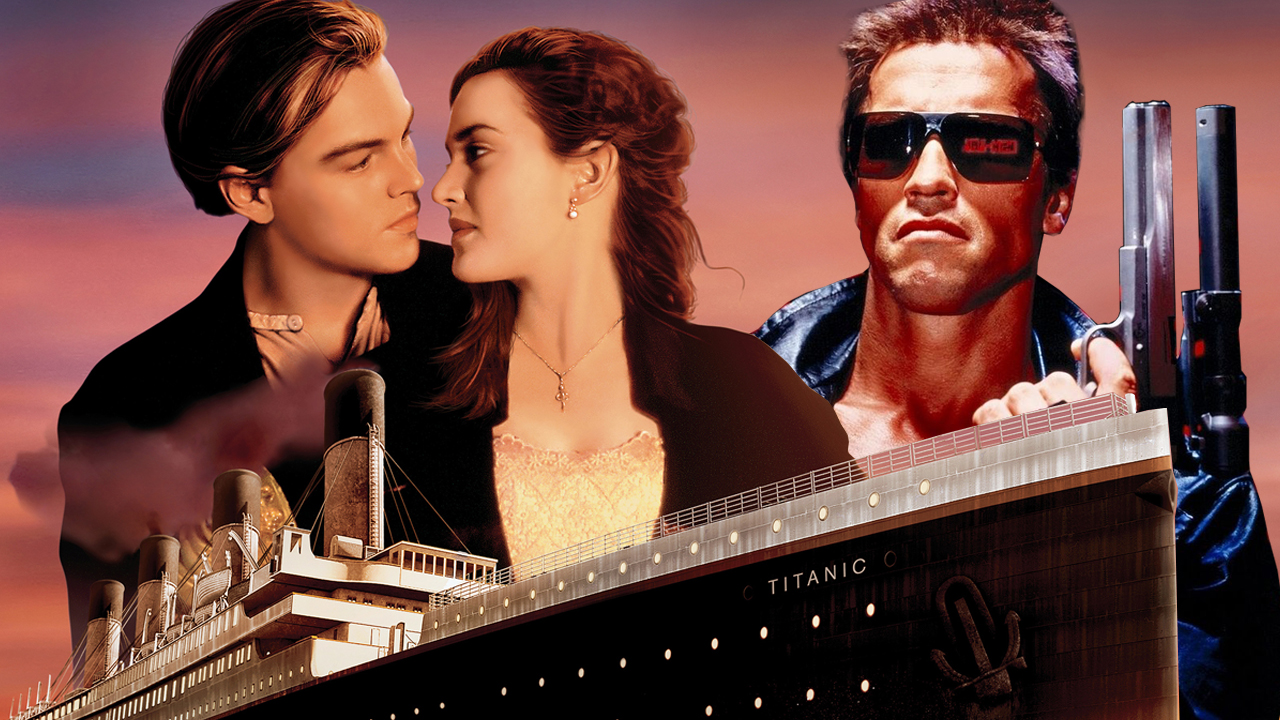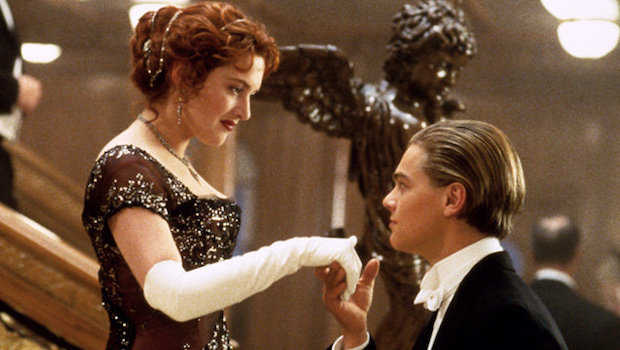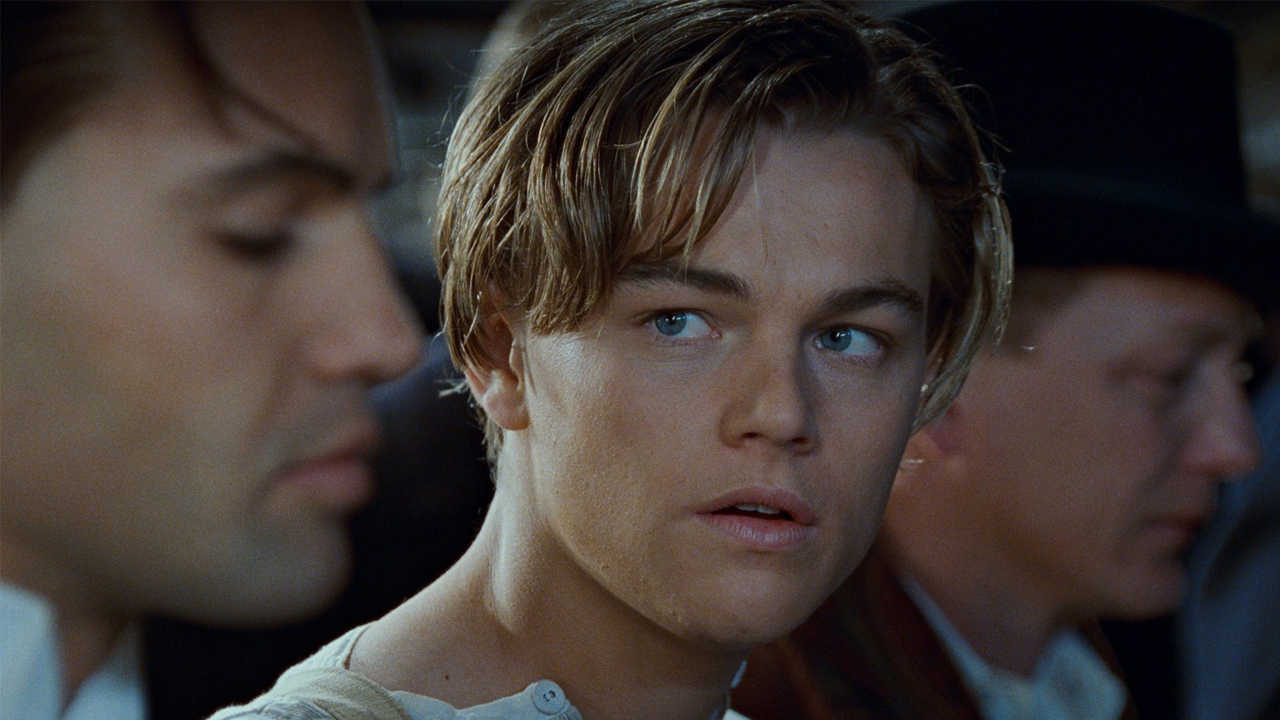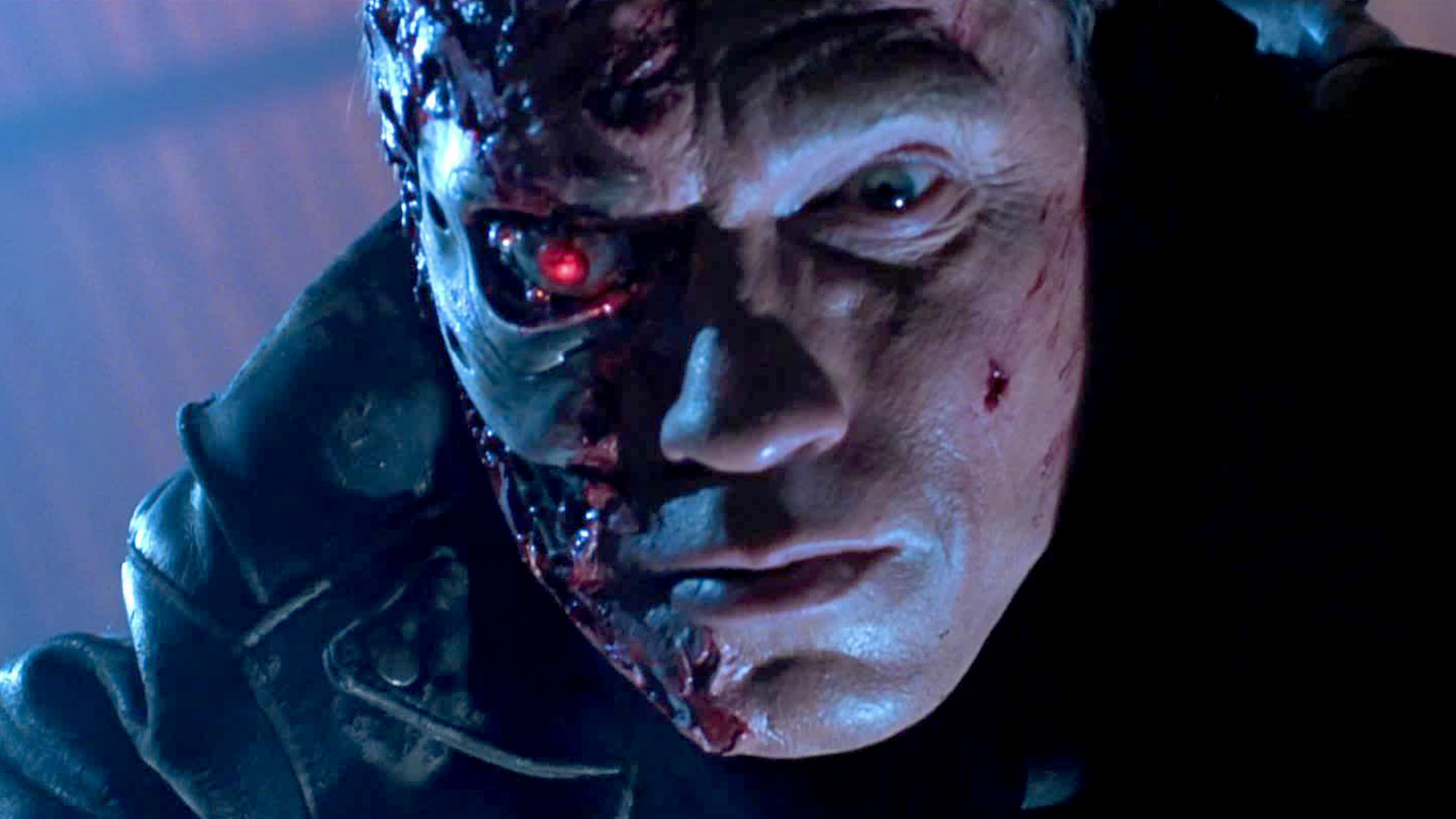Hear me out but... Titanic is secretly a Terminator movie

Titanic, on the surface of it, looked like a heck of a departure for director James Cameron when it was released in 1997. Hell, it still does. As directorial curveballs go, a romantic historical drama set on a decidedly doomed love-boat seems akin to attaching a banana to a boomerang and calling it an innovative new design. The Terminator. Aliens. The Abyss. Terminator 2. True Lies. Titanic. And then straight back into the sci-fi action with Avatar. What the hell, Jim? Just how did you come to be briefly swapped with an alternative James Cameron from a parallel universe in the late-‘90s, and was his Earth like a cool, rule-flipped episode of Sliders, or was the grass just a slightly different colour or something?
Or at least that’s what I used to think. But now I put this to you: Titanic is as logically James Cameron as a James Cameron film can be. Because not only is it a high-concept sci-fi film in its own right, but it’s a canonical side-story in one of the director’s existing franchises. Because Titanic is a Terminator film. Obviously.

It all starts with the anachronisms. Because, despite being such a lavish, presumably well-researched historical project by a director well-versed in the business of serious facts – Cameron has made, like, documentaries and stuff, and is a successful deep-sea diver, and you basically die if you don’t fact-check that stuff – Titanic is full of time-based truth-wrongs. Jack’s haircut, for instance, while one of the most influentially foppish follicle arrangements of the ‘90s, was a tad out of place for the decade the film was actually set in. Ditto his rucksack, which is actually a 1930s’ design, rather than something that would have been common in 1912. But it goes further than this.
Jack himself seems as confused as the movie is. And this is where things start to get really interesting. I could pass off a few iffy props and stylistic choices as an inevitable side-effect of the strain of making a massive movie in which every person, thing, sight, sound, and smell (you scoff, but tech-obsessed Cameron is bound to be working on this for the 30th anniversary) must be accurate to a period before the birth of the movie’s actual crew. But when your lead character starts spouting flagrant chrono-nonsense, in a setting he theoretically belongs to, something suddenly starts to feel a bit weird. And boy, does Jack spout some nonsense.
He mentions that he went ice-fishing on Lake Wissota, which sounds like a good old time indeed. Except that in 1912, it was a good, so-new-it-hadn’t-actually-happened-yet time, as the lake wasn’t dug until 1917. So that’s Jack, recounting some wholesome, fish-killing winter fun that happened five years after he actually died. If, that is, we believe he is who he says he is, which at this point we clearly should not. And then there’s his offer to take Rose to ride the roller coaster on Santa Monica pier. I have been to Santa Monica pier. I have seen that roller coaster. But I would not have seen it in 1912, because it was not built until 1916. What the fuck, Jack? What, are you some kind of *snigger* time-traveller or something?
Oh wait, hang on, that’s exactly what you are, isn’t it?
It's about time

Think about it. His gear and hair are rough approximations of a generic, old-timey look, but not factually correct, as if they’re the work of someone tasked with recreating the past as part of some big, important project, but only half-assing the job, perhaps in a rush. And that job couldn’t be the actual making of Titanic, because Hollywood never gets anything wrong. Jack also has knowledge of eras around the period Titanic is set in, but inexplicably they are periods in the wrong chronological direction, a year or so apart. It’s as if the dubious stowaway has been making his way to 1912 backwards, step-by-step, with a couple of perhaps unscheduled stops along the way. It’s also notable that there’s no record of Jack on the ship’s passenger list, because he scammed his way on board, having arrived with neither ticket nor money. Just like someone from the future probably would.
Sign up for the Total Film Newsletter
Bringing all the latest movie news, features, and reviews to your inbox
But now, having clearly established this as truth, we must stop to consider exactly why Jack is so enthusiastically fucking about with the natural flow of the universe as God intended. Now there are a couple of theories knocking about in this regard – I don’t, incidentally, take credit for the notion that Jack is a time-traveller, as general internet ponderings on the matter have been floating around for a couple of years. Some believe in a traditional, Quantum Leap-style format, in which the character is jumping back in time “to put right what once went wrong”, by saving Rose’s life as she attempts to commit suicide by throwing herself off the ship. Perhaps he knows that she has a better chance of survival if she ends up in the sea during a mass escape attempt later on, at which point a major rescue mission will be launched.
All this is well and good. A Quantum Leap crossover explains Jack’s previous time-jumps as well. Maybe there was an accident to be averted on the Santa Monica roller coaster. Maybe an ice-fisherman needed saving from a really big fish that was massively pissed off with people repeatedly drilling through its ceiling and trying to kill its friends. But I’m not totally sold. Because why would saving Rose – mathematically confirmed to be but one single human being – be Jack’s priority in the face of a sinking, ice-hampered passenger liner? Why wouldn’t he care about saving literally anyone else?
Come with me if you want to live

Why, in fact, would he not be incentivised to allow Rose to jump? That way he could just alert a member of the crew to a woman overboard, allowing the resulting stop-and-search to cause the Titanic to miss that troublesome murderberg altogether. Is this just ‘a surprisingly dark reinterpretation, because internet, LOL’, as some others have simplistically proffered? Was Jack meant to save the ship by letting Rose die, before going off-mission and sacrificing everyone else because he was into her?
Nah, I’m calling bullshit on that one. Jack saves Rose, at the expense of 1500 other lives, because Jack is from James Cameron’s dark, Skynet future and Rose is an ancestor of Sarah Connor. That’s the only way the price is worth it. It’s not one life vs. 1500. It’s 1500 vs. the continued survival of humanity. His references to non-existent roller coasters and lakes are the product of rushed, confused research based on whatever scraps of historical record are left in the post-nuclear wasteland.
As for the oft-debated mystery of why Jack doesn't get on that plank at the end, when there's clearly room for him? He voluntarily dies, to avoid messing up the timeline any further. Just like Arnie at the end of Terminator 2. Arnie dies in fire. Jack dies in ice. Parallels. Poetry. And that’s without even noting that Jack has probably conceived a child with Rose by this point, just like Kyle Reese eventually will with Sarah. The only thing missing is a frosty thumbs-up as Jack goes down. And maybe the iceberg is some kind of Terminator. Like, a shape-shifting water T-1000 or something. I don’t know. You work that bit out for yourselves. I’ve done enough.
Hear me out is GR's regular exploration, extrapolation, and expansion on the biggest and best movie fan theories and alternative takes around. From whole new interpretations, to critical angles you hadn't thought of, it's your home for the weirder side of film.




